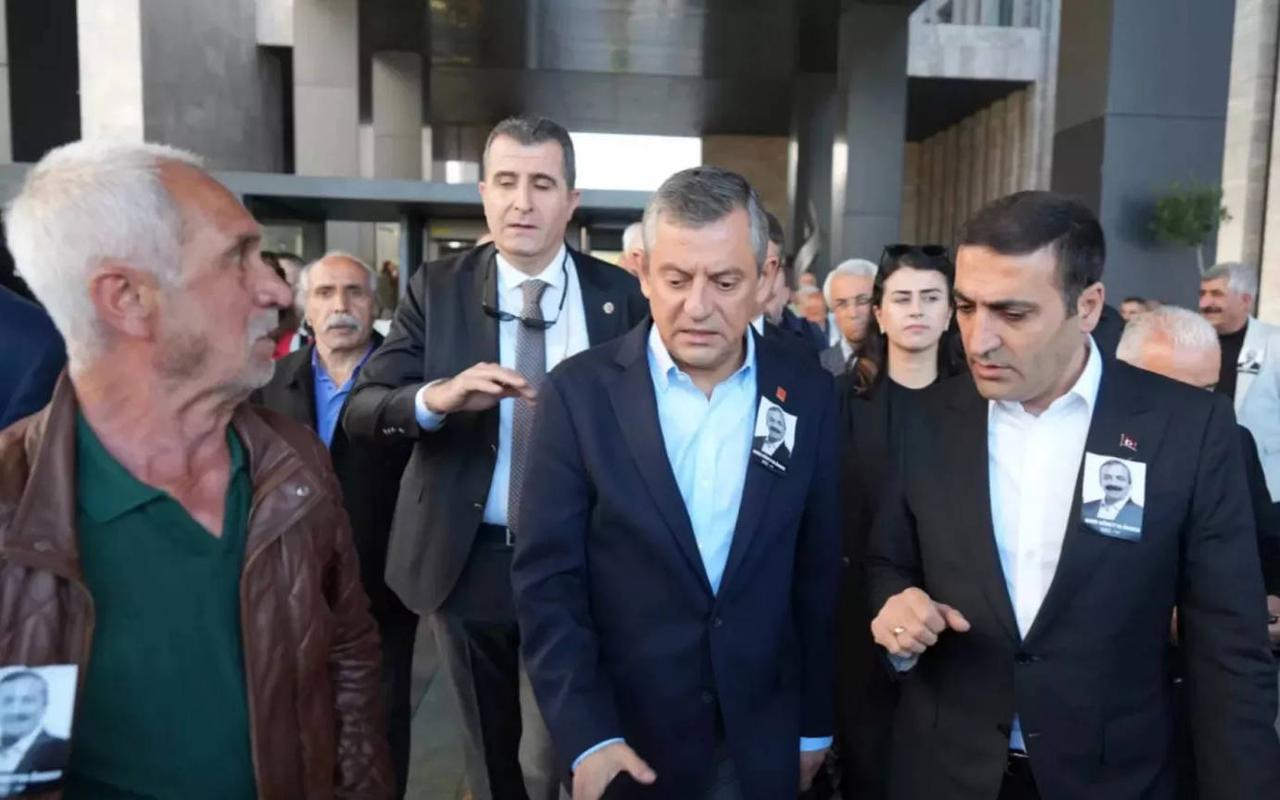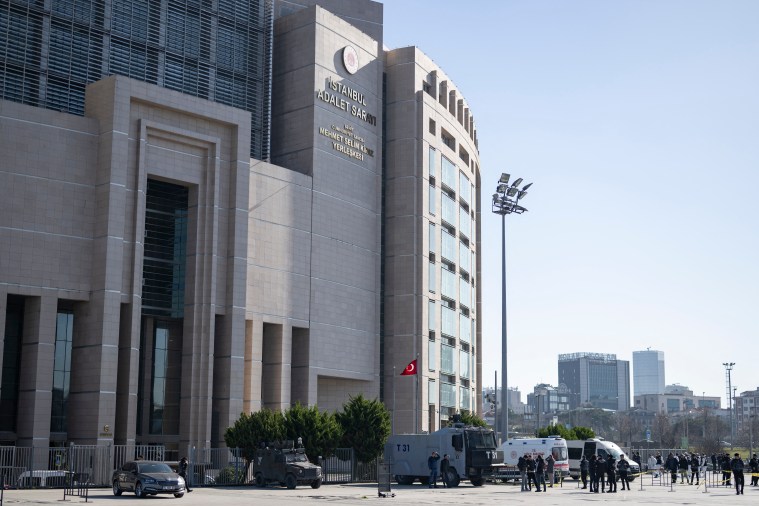
On May 4, Republican People's Party's (CHP) leader Ozgur Ozel was assaulted with a slap following a ceremony held for Sirri Sureyya Onder at Türkiye’s newest cultural center AKM. Ozel was escorted away from the area by security personnel, and the attacker was taken into custody.
Information that emerged later revealed that the assailant had previously served 16 years in prison for murdering two of his own children. This revelation—that someone convicted of killing two innocent kids served only 16 years—sparked renewed public outrage regarding the functioning of the legal system in the country.
The incident’s perpetrator reminded that the problem wasn't merely isolated, but rather part of a widespread issue of "impunity" in the justice system. Perpetrators commit crimes with apparent indifference, knowing they likely won't face adequate punishment. The sense of justice is often said to be wounded in society, and one of the main contributing factors is the early release of criminals.
There has not been an official amnesty in Türkiye for the last 25 years since the “Rahsan amnesty,” named after Rahsan Ecevit, the wife of then-Prime Minister Bulent Ecevit. Over the last decades, Türkiye's legal system has developed what many critics call "backdoor amnesty"—a practice that doesn't officially declare amnesty but effectively achieves a similar outcome through various legal mechanisms. While the Turkish Constitution requires a three-fifths majority to pass an amnesty law, legislators apply a way to circumvent this requirement by implementing early release programs under different names.
Instead of using the term "amnesty," lawmakers employ phrases like "postponement of sentences," "conditional release," or "execution reductions." These mechanisms allow convicted criminals to be released much earlier than their original sentences would indicate.
Conditional release normally allows well-behaved prisoners to serve part of their sentence outside prison under certain conditions, to reintegrate them into society. The global standard is that this occurs after serving two-thirds of the sentence. However, recent changes in Türkiye have dramatically reduced this threshold.
The killer who physically attacked Türkiye's main opposition leader was also one of those who got released on “conditional release.”

Over the past decade, Türkiye has significantly expanded these implicit amnesty practices. In 2012, legislation was passed allowing prisoners who had spent their final six months in open correctional facilities to be released under "probationary supervision" if they had one year or less remaining on their sentences. In 2013, additional provisions were introduced that remained in effect until 2021, allowing certain offenders to be released without transferring to open prisons or serving specific portions of their sentences.
During the 2016 State of Emergency, a decree (KHK 671) modified the Enforcement Law, reducing the conditional release threshold from two-thirds to half of the original sentence. The one-year requirement for probationary supervision was extended to two years for most offenses. This reportedly benefited approximately 120,000 criminals within a single year, allegedly to make room for political prisoners. In 2020, during the COVID-19 pandemic, provisions were expanded further. Prisoners in open correctional facilities or eligible for transfer were granted leave until May 31, 2020—a provision that has been extended repeatedly over three years, affecting nearly 200,000 offenders.
Law No. 7242, enacted in 2020 as part of an omnibus legislative package and colloquially dubbed the “Alaattin Cakici Amnesty” by opposition media, marked a significant expansion of de facto amnesty practices in Turkey. This legislation broadened the scope of the probation regime—originally applicable only to inmates in open penal institutions—to include certain categories of prisoners held in closed penal institutions. Moreover, the eligibility threshold for conditional release was temporarily increased from one year to three years.
This legislative adjustment facilitated the early release of several high-profile convicts, including Alaattin Cakici, Kursat Yilmaz, and Mehmet Aydin.
Subsequently, in July 2023, Law No. 7456 introduced further leniency measures. It allowed inmates who had benefited from COVID-19-related sentence deferrals and had five years or less remaining on their sentences to serve the remainder under supervised release (probation) without returning to prison. In addition, inmates demonstrating good behavior while in closed facilities became eligible for transfer to open institutions three years earlier than previously stipulated under the existing penitentiary framework.
The practical effect of these various measures is that many criminals in Türkiye serve only a fraction of their original sentences. For example, the 2020 law provided that if a person sentenced to 18 years in prison might only serve six years before release, first by having the conditional release threshold reduced to nine years (half the sentence), then by qualifying for probationary supervision three years before that date.

According to legal experts, the justifications typically offered for these amnesty measures—"social peace" and "prison overcrowding"—are insufficient. Attorney Gokce Guler Akgun argues that the fundamental purpose of criminal penalties is deterrence and rehabilitation, noting that "releasing an offender without proper social rehabilitation threatens public order and security rather than promoting social peace."
Guler-Akgun suggests that instead of mass releases, the focus should be on creating conditions within prisons that allow inmates to develop and change. Acknowledging instances of the reality of poor prison conditions in Türkiye, where inmates are often housed in ways "incompatible with human dignity," she argues that legal reforms to the penal and enforcement codes would better serve social peace than partial amnesties.
There is a growing perception of impunity in Turkish society, which can be examined from both victim and perpetrator perspectives. The experienced attorney explains that victims, believing offenders will either escape punishment or face lengthy trial processes, may attempt to dispense justice themselves, undermining their trust in the state's legal system and judiciary.
From the perpetrator's standpoint, knowing that severe penalties are unlikely creates little deterrent effect. "Despite knowing their actions constitute crimes, offenders see no harm in committing them, believing they won't be punished," the law expert notes.
This perception of impunity significantly impacts public confidence in the justice system. As Guler-Akgun emphasizes, the deterrent nature of criminal and penal enforcement laws plays a crucial role in shaping individual behavior. When individuals understand that unlawful actions will lead to real and enforceable consequences, they are more likely to refrain from committing crimes. Therefore, addressing the pervasive perception of impunity is essential. By reestablishing the link between unlawful conduct and meaningful punishment, it becomes possible to transform societal attitudes toward justice and ultimately restore the public’s eroded confidence in the legal system.